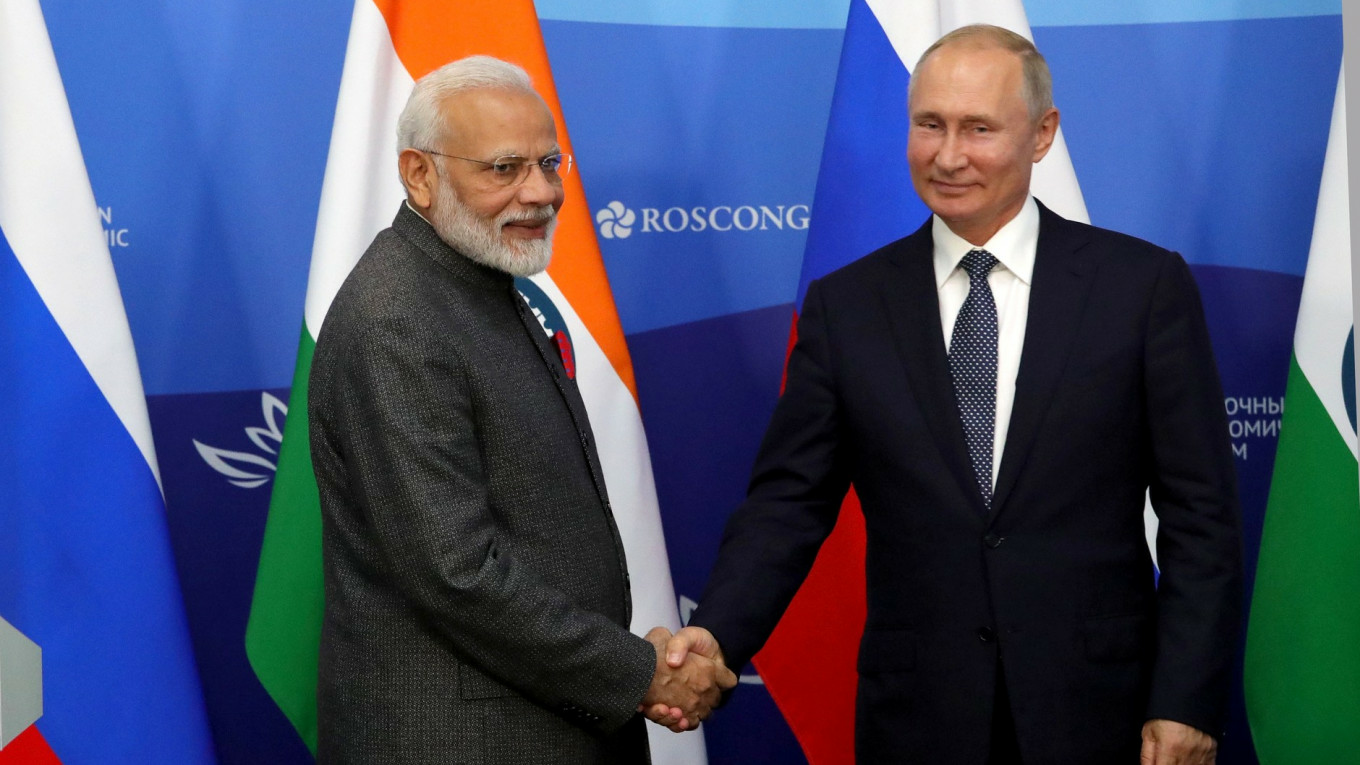The diplomatic isolation of Russia could have gone more successfully had there been working brains in the capitals of Washington, Tehran, and New Delhi.
The fools and cowards who rule all three capitals mistake their enemies for friends.
Last August, they allowed Afghanistan to fall to the hands of Pakistan, China, and the Taliban.
The Taliban takeover of Afghanistan was completely preventable had there been greater regional and international pressure on Islamabad.
The crisis in Kabul called for bravery, compassion, and strategic foresight, but the West, Iran, and India acted with cowardice and malice, abandoning the Afghan people to their doom.
Putin faced a similar choice regarding the Donbass region of Eastern Ukraine. After eight years of a largely one-sided war and fruitless negotiations he finally decided to come to the Russian people's aid in that stateless area. If he had not they would've been wiped off the map by the thugs who rule Kiev.
Putin's brave and compassionate actions were based on strategic calculations that ultimately strengthened the power and prestige of his state.
Other leaders could learn from him.
An excerpt from, "Russia is not a friend of India" By Subramanian Swamy, Sunday Guardian Live, October 31, 2020:
The relevance of all this history is that most Indians still think that “Russians” are India’s permanent friends, little realising that in international affairs there are “no permanent friends, no permanent enemies, but only permanent interests of nations”.
Moreover, Russians earlier were friends of the Nehru family, but not of India. Although clinching proofs are kept in frozen vaults in tight fisted Russian archives, most knowledgeable Indian patriots suspect that Netaji Subash Bose, Lal Bahadur Shastri, Deendayal Upadhyaya, and Sanjay Gandhi were assassinated by the KGB to ensure secure entry into the top positions for Nehru, Indira Gandhi, and Sonia Gandhi.
Books written by ex KGB agents and Yelstin government intellectuals such as Mitrokhin and Albats establish the KGB connections of the Nehru “dynasty”. Putin is a trained KGB officer turned politician. In 2006 he personally escorted Ms Sonia Gandhi to the Vladimir jail near St Petersburg, where Sonia Gandhi’s father Stephano Maino as Hitler’s army jawan, was taken prisoner during World War II and kept in jail. He was let off early from Vladimir jail by the Russians reportedly because he was cooperative in the KGB interrogation. When Maino returned home to Orbassano, Italy, he renamed his three daughters with Russian names. Antonia became thus Sonia.
An excerpt from, "It’s time India got real about its ties with Russia" by Dhruva Jaishankar, Hindustan Times, July 27, 2018:
But India-Russia ties would also benefit from a dose of realism, a Bulgakovian realisation that no one’s fate is of any interest to you except your own. There is little indication that Putin views India in sentimental terms, unlike an earlier generation of Russian officials exemplified by former Prime Minister Yevgeny Primakov or the late Russian envoy Alexander Kadakin. India’s high-profile and sustained outreach to Moscow in 2018 is not a reversion to an imagined past. It is a hard-nosed attempt at managing a transactional relationship over the medium-term future to secure vital Indian security interests and preserve a favourable balance of power.
An excerpt from, "Will Russia Betray Iran Again?" By Nikola Mikovic, Geopolitical Monitor, July 11, 2019:
If history is any guide, Russia already proved to be a completely unreliable partner, especially when it comes to Iran. Moscow has refused to provide Iran with an S-400 missile system, although this request allegedly came from the very top of the Iranian political leadership. Kremlin officials explained that “the sale would stoke more tension in the Middle East.” In other words, Russia tried to avoid any confrontation with major Western and regional powers over this very sensitive matter. On the other hand, it’s interesting that Russians didn’t hesitate to provide this weapons system to the NATO member state Turkey.
. . .
Armenia is another Russian “ally” that constantly has doubts over its alliance with Moscow. In 2017, Russia delivered a new batch of anti-tank missiles to Azerbaijan as a part of a lucrative arms deal with Baku that has been strongly criticized by Armenia. However, Russian Prime Minister Dmitry Medvedev rejected the ensuing criticism, saying that “providing weapons to both sides creates a military balance in the conflict.”
Russia is also trying to create a balance in Syria. On one hand, it backs the Syrian Arab Army against ISIS and various Jihadi factions, but on the other hand it doesn’t provide any support to the Syrian armed forces against frequent Israeli air strikes, which is why some analysts believe that Russia acts as ally of Israel. For the past few years, Tel Aviv has used its military superiority to hit at the different elements of Iran’s military presence in Syria, including its proxies. Russia has the ability to protect Iranian forces with its own air force and air defense systems in Syria, but it has opted not to use them to stop Israel.
An excerpt from, "Ditched by US and betrayed by Russia, but India still tore down Chinese wall" By Indrani Bagchi, The Times of India, September 18, 2015:
There was diplomatic blood on the floor in the tension-filled days before the UNGA decision on Monday to begin text-based negotiations to reform the UN Security Council. Once again, China and Russia led the move to sabotage the process.
A few days before the UNGA session, Chinese and Russian diplomats, in a stealth operation, attempted to insert a couple of paragraphs into the text. If they had succeeded, it would have diluted the entire negotiations on unnecessary technicalities which would have meant the UN would be negotiating UNSC reform for years and years without a decision in sight.
